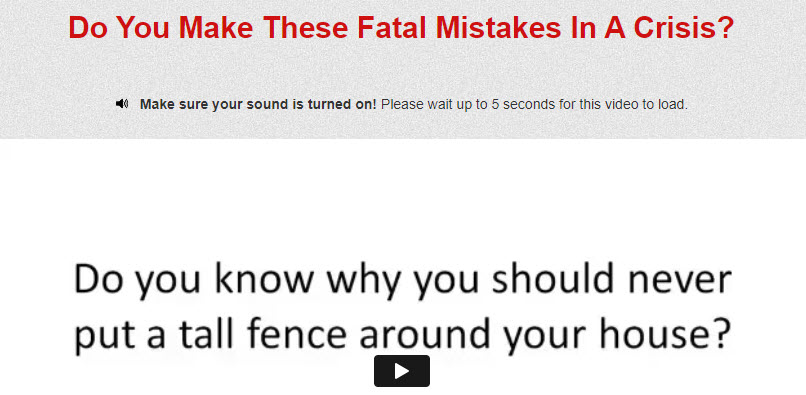In a world filled with varying opinions and perspectives, conflicts are almost inevitable. However, what if there was a way to defuse these conflicts without resorting to aggression or hostility? Enter the power of verbal self-defense. With the right words and communication techniques, you can navigate through challenging conversations, diffuse tension, and find common ground with others. In this article, you will learn the art of verbal self-defense and how it can empower you to resolve conflicts peacefully and build stronger relationships. So, buckle up and get ready to discover the transformative power of words.
Understanding Verbal Self-Defense
Definition of Verbal Self-Defense
Verbal self-defense refers to the ability to use words and communication techniques to protect oneself and diffuse conflict in a non-violent manner. It involves effectively expressing your thoughts and emotions, while also listening and understanding the perspective of others. Verbal self-defense is based on the belief that conflicts can be resolved through open and respectful communication, rather than resorting to aggression or violence.
Importance of Verbal Self-Defense Skills
Having strong verbal self-defense skills is essential in navigating and resolving conflicts in various aspects of life. Being able to communicate assertively, actively listen, and set boundaries can help you maintain healthy relationships, improve teamwork and collaboration, and prevent misunderstandings. Verbal self-defense skills are particularly valuable in situations where physical confrontation is not appropriate or desired, such as in personal relationships, workplace conflicts, social settings, and online interactions.
How Verbal Self-Defense Differs from Aggression
It is crucial to understand that verbal self-defense is different from aggression. While aggression involves attacking and belittling others to gain power or control, verbal self-defense is about asserting yourself in a respectful and non-threatening manner. Verbal self-defense aims to diffuse conflict, understand different perspectives, and find mutually agreeable solutions. It focuses on promoting understanding, empathy, and constructive communication, rather than perpetuating hostility and animosity.
The Psychological Impact of Verbal Conflict
Verbal conflict can have a significant psychological impact on individuals involved. It can lead to increased stress, anxiety, and feelings of powerlessness. Prolonged exposure to verbal aggression or conflict can even result in long-term emotional scars and damage to self-esteem. By learning and practicing verbal self-defense, individuals can minimize the psychological impact of conflict, maintain their self-confidence, and foster healthier relationships.
Key Principles of Verbal Self-Defense
Assertiveness versus Aggressiveness
One of the key principles of verbal self-defense is assertiveness. Being assertive involves expressing your thoughts, feelings, and needs in a clear and confident manner, while also respecting the rights and opinions of others. It is important to distinguish assertiveness from aggressiveness. Assertiveness aims to maintain respect and harmony, whereas aggression involves dominating others and disregarding their perspectives. Practicing assertiveness can help you confidently navigate conflicts and communicate effectively.
Active Listening
Active listening is a crucial skill in verbal self-defense. It involves fully engaging with the speaker, paying attention to their words, and understanding their emotions and motivations. Active listening helps create a safe and empathetic environment, allowing for better understanding of the conflict and reducing the chances of misunderstandings. By showing genuine interest and attentiveness, you can foster open and productive communication, leading to conflict resolution and improved relationships.
Empathy and Emotional Intelligence
Empathy and emotional intelligence play important roles in verbal self-defense. Empathy involves understanding and sharing the emotions of others, while emotional intelligence refers to the ability to recognize and manage our own emotions and those of others effectively. By practicing empathy and emotional intelligence, you can develop a deeper understanding of other people’s perspectives, communicate with compassion, and find common ground for resolving conflicts.
Setting Boundaries
Setting boundaries is a vital aspect of verbal self-defense. Boundaries define what is acceptable and unacceptable in your interactions with others. By clearly communicating your boundaries, you can prevent misunderstandings, maintain your personal integrity, and protect your emotional well-being. Setting boundaries also helps establish healthy and respectful relationships, where both parties feel safe and valued.
Non-Defensive Communication
Non-defensive communication is the practice of responding to conflict without becoming defensive or attacking others. It involves staying calm, composed, and focused on the issue at hand, rather than getting caught up in personal attacks or blame. Non-defensive communication helps foster a constructive and supportive atmosphere, where conflicts can be addressed and resolved with dignity and respect.
Recognizing Different Conflict Styles
Passive Conflict Style
The passive conflict style is characterized by avoiding confrontation and failing to assert one’s needs or boundaries. Individuals who engage in passive conflict style often sacrifice their own desires or beliefs to keep the peace or avoid rocking the boat. While this approach may temporarily diffuse conflict, it can lead to unresolved issues and build up resentment over time.
Aggressive Conflict Style
The aggressive conflict style involves overpowering others, attacking their positions, and prioritizing one’s own needs over others. Aggressive individuals may use threats, insults, or physical intimidation to assert dominance. This style of conflict management often escalates conflicts and creates a hostile environment, damaging relationships and hindering resolution.
Passive-Aggressive Conflict Style
The passive-aggressive conflict style combines elements of both passivity and aggression. Individuals who employ this style may appear agreeable on the surface but express their anger or frustration indirectly. They often resort to sarcasm, subtle insults, or subtle acts of sabotage, undermining the resolution of conflicts.
Assertive Conflict Style
The assertive conflict style is the most effective and respectful approach to conflict resolution. Assertive individuals express their thoughts, feelings, and needs in a clear and respectful manner, while also actively listening to others. They aim to find mutually beneficial solutions and prioritize open communication and understanding.
Developing Verbal Self-Defense Skills
Enhancing Self-Awareness
Self-awareness is a foundational element in developing effective verbal self-defense skills. By understanding your own emotions, triggers, and communication patterns, you can become more conscious of how you engage in conflicts and identify areas for improvement. Reflecting on your behavior and seeking feedback from trusted individuals can help you gain a deeper understanding of yourself and your communication style.
Managing Emotional Triggers
Emotional triggers are events, words, or actions that provoke intense emotional responses. Recognizing and managing these triggers is essential in maintaining composure during conflicts. By learning coping mechanisms, such as deep breathing or taking a pause, you can prevent your emotions from taking control and respond more effectively to conflicting situations.
Training in Effective Communication
Training in effective communication can significantly enhance your verbal self-defense skills. Workshops, courses, or therapy can provide you with practical tools and techniques for expressing yourself assertively, active listening, and resolving conflicts constructively. Such training can empower you with the necessary skills to navigate various challenging situations with confidence and respect.
Improving Non-Verbal Communication
Non-verbal communication, such as body language, tone of voice, and facial expressions, plays a crucial role in how your message is perceived. Understanding and improving your non-verbal communication skills can help convey your message consistently with your verbal communication. By practicing open and welcoming body language, maintaining eye contact, and using an appropriate tone, you can create a positive and respectful communication environment, even in the midst of conflict.
Techniques for Diffusing Conflict
Active Listening
Active listening is an essential technique for diffusing conflict. It involves fully focusing on the speaker, maintaining eye contact, and acknowledging their words and emotions. By demonstrating genuine interest and empathy, you can create a safe space for open communication and encourage the speaker to express themselves more openly. Active listening helps build trust and understanding, paving the way for conflict resolution.
Using ‘I’ Statements
Using “I” statements is a powerful technique for expressing your feelings and needs without blaming or attacking others. This technique involves framing your statements in terms of your own experience and emotions, rather than making assumptions or generalizations about the other person. By using “I” statements, you maintain ownership of your thoughts and feelings while promoting open and non-threatening communication.
Reframing and Perspective-Taking
Reframing and perspective-taking involve considering different viewpoints and trying to understand the underlying motivations and emotions behind conflicting opinions. By reframing the situation and putting yourself in the other person’s shoes, you can gain insight into their perspective and find common ground. This technique fosters empathy and facilitates more collaborative conflict resolution.
De-escalation Strategies
De-escalation strategies are tactics used to reduce tension and hostility in conflicts. These strategies include taking breaks to cool down, using humor to diffuse tension, finding shared interests or goals, and acknowledging the validity of the other person’s emotions. De-escalation techniques can help shift the focus from confrontation to resolution and create a more cooperative atmosphere.
Open-Ended Questions
Open-ended questions encourage the speaker to provide more detailed responses, leading to deeper understanding and better communication. By asking open-ended questions, you demonstrate your interest and willingness to listen, while also encouraging the speaker to reflect on their thoughts and emotions. Open-ended questions help elicit valuable information and contribute to a more productive conflict resolution process.
Acknowledging and Validating Emotions
Acknowledging and validating emotions is a powerful technique for diffusing conflict and building empathy. It involves recognizing and empathizing with the other person’s emotions, even if you may not agree with their perspective. By acknowledging their feelings and validating their experiences, you create a safe space for open dialogue and demonstrate your respect for their emotions.
Focusing on Common Goals and Interests
Focusing on common goals and interests helps shift the focus from individual differences to shared objectives. By identifying and highlighting common ground, you can foster collaboration and cooperation in conflict resolution. This technique encourages individuals to work together towards a mutually beneficial solution, rather than getting caught up in individual demands or desires.
Handling Verbal Attacks
Remaining Calm and Composed
When faced with verbal attacks, it is crucial to remain calm and composed. Taking deep breaths, counting to ten, or mentally reminding yourself to stay composed can help prevent an immediate emotional reaction. By staying calm, you can respond thoughtfully and effectively, rather than reacting impulsively or defensively.
Avoiding Personalizing the Attack
Verbal attacks often target the person rather than the issue at hand. It is essential to differentiate between the attack and your own self-worth. Remind yourself that the attack is likely a reflection of the other person’s emotions or frustrations, rather than a commentary on your character or abilities. By avoiding personalization, you can respond with more empathy and understanding.
Responding with Empathy and Understanding
Responding to verbal attacks with empathy and understanding can help defuse the situation. By acknowledging the other person’s emotions and concerns, you create an atmosphere of mutual respect and open dialogue. Responding with empathy can also prevent the escalation of the conflict and demonstrate your commitment to finding a resolution.
Disarming Techniques
Disarming techniques involve responding to verbal attacks in a way that diffuses tension and redirects the focus towards conflict resolution. These techniques may include acknowledging the validity of the other person’s concerns, using humor to inject lightness into the situation, or redirecting the conversation towards common goals or shared interests. Disarming techniques help to create a more collaborative and constructive atmosphere.
Setting Limits and Consequences
When dealing with repeated or severe verbal attacks, it may be necessary to set limits and consequences. Communicate clearly and assertively about what behavior is acceptable and unacceptable. By setting boundaries and consequences, you establish your own self-respect and signal that you will not tolerate ongoing verbal abuse. It is essential to follow through with the established consequences to maintain the effectiveness of this approach.

Building Emotional Resilience
Developing Self-Confidence
Building self-confidence is a crucial aspect of developing emotional resilience. Self-confidence allows you to trust in your own abilities and worth, even in the face of conflict or criticism. By recognizing your strengths, setting achievable goals, and celebrating your accomplishments, you can cultivate a sense of self-assurance that is resilient to verbal attacks or conflicts.
Practicing Self-Care
Practicing self-care is essential for maintaining emotional resilience. Taking care of your physical and mental well-being is crucial in navigating and coping with conflict. Engaging in activities that bring you joy, spending time with loved ones, getting enough rest, and seeking support when needed can all contribute to your emotional well-being.
Mindfulness and Meditation
Mindfulness and meditation are powerful tools for managing stress, regulating emotions, and building resilience. Mindfulness involves being fully present and aware of your thoughts, emotions, and sensations in the present moment, without judgment. Regular meditation practice can help calm the mind, improve emotional regulation, and increase self-awareness, making you better equipped to handle conflicts with composure and empathy.
Seeking Support and Feedback
Seeking support and feedback from trusted individuals can provide valuable perspectives and guidance when navigating conflicts. Whether it’s from friends, family, mentors, or therapists, having a support network can provide emotional support, offer different viewpoints, and help you gain new insights into conflict resolution. Constructive feedback can also help you identify areas for growth and improvement in your verbal self-defense skills.
Verbal Self-Defense in Different Contexts
Personal Relationships
Verbal self-defense plays a vital role in maintaining healthy and fulfilling personal relationships. By effectively communicating your needs, setting boundaries, and actively listening to your partner, family members, or friends, you can foster open dialogue and prevent conflicts from escalating. Verbal self-defense also allows for understanding and resolving conflicts in a way that strengthens the relationship rather than putting it at risk.
Workplace Conflicts
Conflicts are common in the workplace, and verbal self-defense skills can be instrumental in resolving them effectively. By practicing assertive communication, active listening, and problem-solving techniques, you can diffuse conflicts, improve teamwork, and foster a positive and productive work environment. Verbal self-defense also enables clear and respectful communication with supervisors, colleagues, and subordinates, promoting healthier and more satisfying workplace relationships.
Social Settings
Verbal self-defense skills are essential in navigating conflicts in social settings. Whether it is addressing differing opinions, managing sensitive topics, or dealing with challenging individuals, the ability to communicate assertively and respectfully is crucial. Verbal self-defense can help maintain harmony, prevent misunderstandings, and preserve relationships in social settings, creating a more inclusive and enjoyable environment.
Online Interactions
With the widespread use of social media and online platforms, conflicts in virtual spaces are becoming increasingly common. Verbal self-defense is valuable in navigating conflicts in online interactions. By practicing respectful communication, actively listening, and identifying potential misunderstandings, individuals can engage in healthier and more productive online conversations. Verbal self-defense also helps prevent the escalation of conflicts and fosters a more constructive and empathetic online community.
Addressing Power Imbalances
Recognizing Power Dynamics
Power dynamics exist in various relationships and can significantly impact how conflicts are handled. It is crucial to recognize power imbalances, whether they stem from differences in authority, privilege, or social status. By acknowledging and understanding power dynamics, individuals can strive for more equitable and respectful communication, ensuring that conflicts are addressed in a fair and balanced manner.
Advocating for Yourself
Advocating for yourself is an essential aspect of verbal self-defense, particularly when faced with power imbalances. It involves confidently asserting your needs, concerns, and boundaries, even in the presence of authority figures or individuals with more power. By advocating for yourself, you ensure that your voice is heard and your rights are respected, contributing to a more balanced conflict resolution process.
Asserting Boundaries with Authority Figures
Verbal self-defense is especially important when dealing with conflicts involving authority figures. It is crucial to assert boundaries, express yourself respectfully, and advocate for your rights, even when engaging with individuals who hold power. By maintaining your composure, expressing your thoughts clearly, and focusing on the issue at hand, you can address conflicts effectively while maintaining respect for authority.
Promoting Equality and Consent
Verbal self-defense can actively contribute to promoting equality and consent in relationships and interactions. By engaging in respectful and equitable communication, individuals can challenge power imbalances, adhere to consent boundaries, and contribute to a culture of respect and inclusivity. Verbal self-defense empowers individuals to express their concerns and advocate for equal treatment, both on a personal and societal level.
Teaching Verbal Self-Defense
Educational Programs and Workshops
Educational programs and workshops are effective ways to teach verbal self-defense skills. These programs can be conducted in schools, community centers, workplaces, or other group settings. They provide participants with practical tools, techniques, and scenarios to practice assertive communication, active listening, and conflict resolution. By offering educational programs and workshops, individuals and organizations can help empower others to navigate conflicts and build healthier relationships.
Encouraging Emotional Intelligence in Schools
Emotional intelligence is an essential component of verbal self-defense. Introducing emotional intelligence education in schools can equip students with the necessary skills to understand and manage their emotions, communicate effectively, and navigate conflicts. By incorporating emotional intelligence curriculum, schools can promote healthy communication, empathy, and conflict resolution from an early age.
Promoting Constructive Communication Skills
Promoting constructive communication skills in various settings is crucial for fostering a culture of respect and understanding. Organizations and institutions can encourage the development of constructive communication skills through training programs, awareness campaigns, and policy implementation. By promoting effective communication, conflicts can be approached with empathy, resulting in more harmonious and productive outcomes.
Role-Playing and Simulation Exercises
Role-playing and simulation exercises provide practical opportunities to practice verbal self-defense skills in a safe and controlled environment. These exercises can involve creating conflict scenarios and allowing participants to engage in assertive communication, active listening, and problem-solving techniques. Role-playing and simulation exercises offer valuable learning experiences, allowing individuals to experiment with different approaches and receive feedback on their communication style.
In conclusion, verbal self-defense plays a crucial role in diffusing conflicts and promoting healthy communication. By understanding its principles and techniques, individuals can assert themselves respectfully, actively listen, and navigate conflicts with empathy and understanding. Verbal self-defense contributes to the development of constructive relationships, both in personal and professional settings, and fosters a more inclusive and harmonious society. Through self-awareness, training, and practice, anyone can enhance their verbal self-defense skills and become better equipped to handle conflicts with words.








